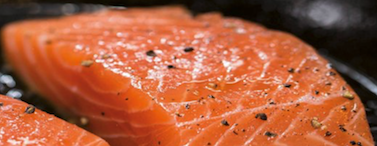UPDATE 3 — The UK’s Food and Drink Federation (FDF) said that exports of food and drink from the UK to the European Union plunged by 75.5% in January 2021 compared to January 2020 — with salmon exports to the EU falling 98% and Scotch whisky down 63%.
Salmon exports from the UK to the EU fell from £27.7 million in January 2020 to a mere £500,000 in January 2021, with whisky exports to the EU plunging from £105.4 million to £38.9 million.
Scotland’s salmon producers said they are spending £200,000 a month on extra paperwork because of Brexit.
They said this £2.5 million annual bill will come on top of the delays, cancellations and problems which have already cost the Scottish salmon sector millions of pounds in lost orders, lower prices and cancelled harvests.
The FDF attributed much of the fall in exports to post-Brexit delays and barriers.
The FDF said the total value of food and drink exported to the EU from the UK in January 2020 was £1 billion but this fell to £256 million in January 2021.
The FDF said the worst hit trade route was to Ireland.
In January 2020, Ireland was the UK’s biggest market, representing around 18% of total food and drink exported — but in January 2021 the figure had dropped to only 5%, the FDF said.
Dominic Goudie, Head of International Trade at FDF, said: “It is extremely worrying that our exports to the EU have fallen by more than 75% in January.
“Businesses face significant challenges when trading with the EU and small businesses in particular have been shut out because groupage distribution is not working.
“In the absence of solutions, EU exporters will face much the same difficulties when the UK’s full border operating model enters into force in 2022.
“It is clear that the terms of the Trade and Cooperation Agreement (TCA) will not change and businesses face unavoidable changes to the terms of trade.
“However, there are opportunities to address the implementation of the deal.
“The EU-UK Partnership Council and its Trade Specialised Committees should be convened as a matter of urgency to put in place solutions that deliver the TCA’s aim of enhancing the ability of small businesses to benefit from trade.”
The Scottish Salmon Producers Organisation (SSPO) said there is now an “urgent need” for post-Brexit export paperwork to be simplified to avoid damaging delays.
The key piece of paperwork “at the heart of export delays to the EU” should be completely redrawn and simplified, according to the Scottish salmon sector.
SSPO CEO Tavish Scott said there is an urgent need for the Export Health Certificate (EHC) to be re-designed.
It now takes about two hours for each seafood load to be processed and given an export health certificate for transport to the EU and, in some case, this process is taking four hours or longer.
These delays mean salmon is not arriving in France on time, leading to lost orders, discounted sales and disgruntled customers.
Scott said he has asked the UK Government to look into this issue as a matter of urgency and he raised the issue personally with Michael Gove, the UK Government’s Brexit Cabinet supremo, on a recent call.
Scott said: “Seafood exports are fundamentally important for both the Scottish and UK economies. Salmon is the UK’s number one food export. So we need Government to reduce the costs and complexity that our sector faces.”
Scott said he has received a verbal assurance from Gove that the UK Government will look to re-design, re-draw and simplify the export certificate, which can run to dozens of pages for each order.
One of the biggest problems with the certificate is that numerous boxes have to be crossed out by certifying officers, scoring out all products which the supplier is not exporting to the EU.
This often leads to confusion and mistakes, causing delays both in the UK and at the EU border posts.
Scott added: “I welcome the commitment that the UK Government has given to initiate a system review of Export Health Certificates.
“They were never designed for perishable products like salmon and therefore never should have been the document we are forced to use as exporters.
“Progress on this is vitally important for our salmon sector and the seafood industry.”
According to figures collated by the SSPO, Scotland’s salmon producers are spending £200,000 a month on extra paperwork because of Brexit.
This £2.5 million annual bill will come on top of the delays, cancellations and problems which have already cost the sector millions of pounds in lost orders, lower prices and cancelled harvests.
